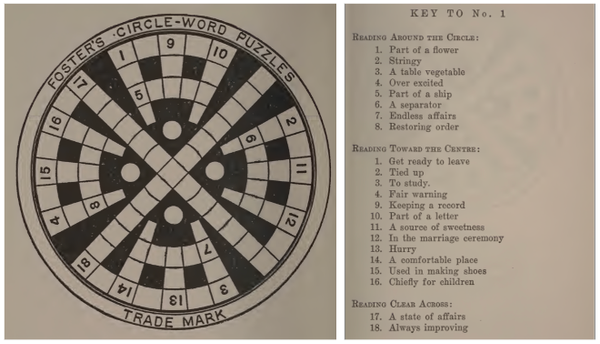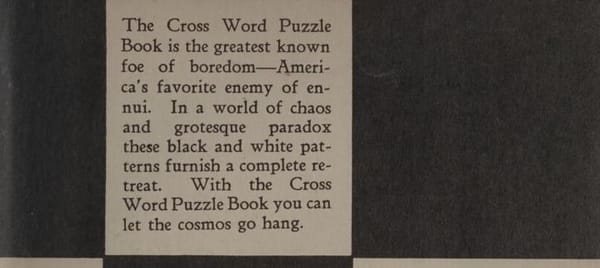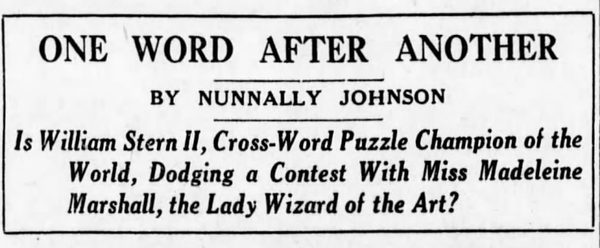April 22, 1924: Crosswords versus the censors
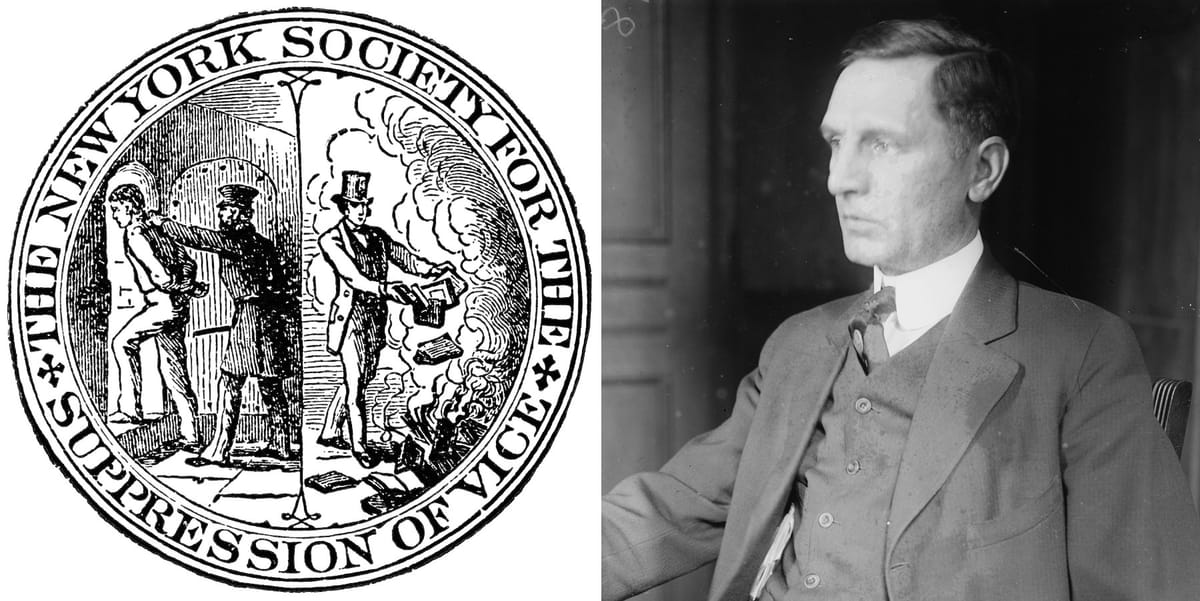
In an earlier post, we made the acquaintance of New York World columnist Heywood Broun and his crossword-obsessed wife Ruth Hale. The new crossword craze is once again featured in the Apr. 22, 1924 installment of Broun's syndicated column "It Seems to Me," in which crosswords appear as a counterpoint to the moralism of censorship advocates.
At the time, the New York Society for the Suppression of Vice served as a kind of morality police, actively seeking to censor books, movies, and other popular media. The group was led by John S. Sumner, who had succeeded the founder, Anthony Comstock. In 1921, they won a court case banning James Joyce's Ulysses on obscenity grounds, and they would go on to target such works as D.H. Lawrence's Lady Chatterley's Lover.
In his column, Broun quotes correspondence from "R.L.S." poking fun at Sumner and his morality crusade. Broun had already used his column to ridicule a piece by Sumner in McCall's advocating film censorship. (Sumner harrumphed, "Who has not observed the young couples in the back rows spooning when love-making is vividly portrayed?")
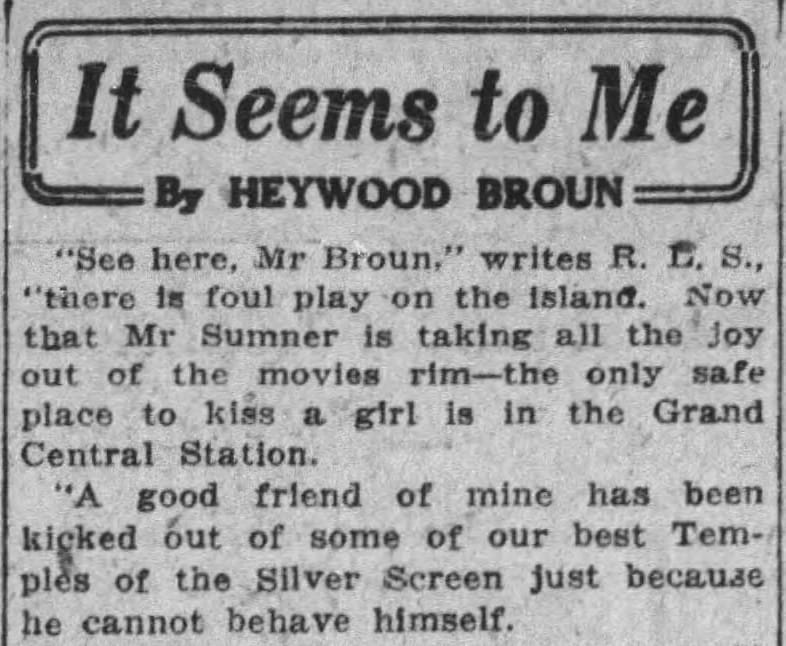
Broun's correspondent goes on to present crossword puzzles as a kind of refuge from Sumner's rampage against books and other materials considered obscene.
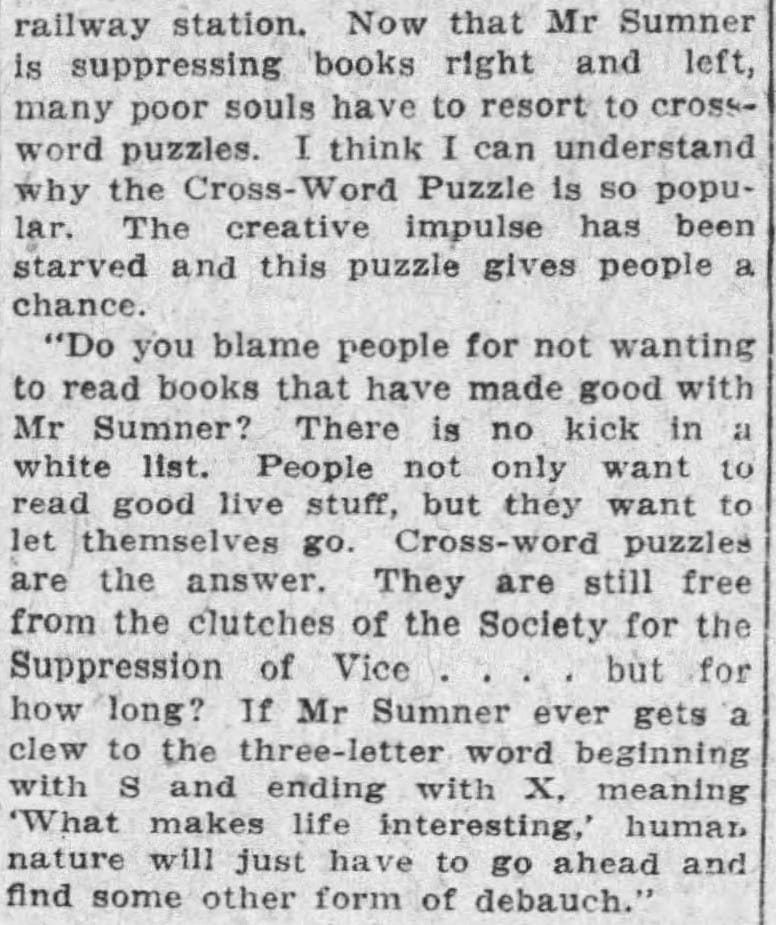
“Now that Mr Sumner is suppressing books right and left, many poor souls have to resort to cross-word puzzles. I think I can understand why the Cross-Word Puzzle is so popular. The creative impulse has been starved and this puzzle gives people a chance.
“Do you blame people for not wanting to read books that have made good with Mr Sumner? There is no kick in a white list. People not only want to read good live stuff, but they want to let themselves go. Cross-word puzzles are the answer. They are still free from the clutches of the Society for the Suppression of Vice .... but for how long? If Mr Sumner ever gets a clew to the three-letter word beginning with S and ending with X, meaning ‘What makes life interesting,’ human nature will just have to go ahead and find some other form of debauch.”
While the Society for the Suppression of Vice may not have ever set its sights on cruciverbal debauchery, the crossword would indeed be seen by some as a kind of moral menace as the craze got crazier.

